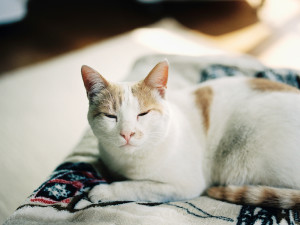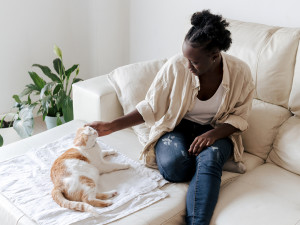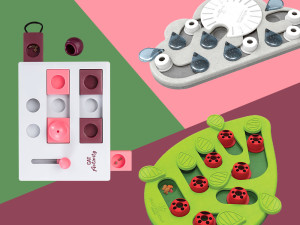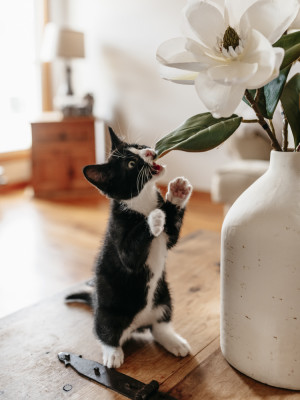This Study Says You Literally Can’t Hide From Your Cat
Happy spooky season.
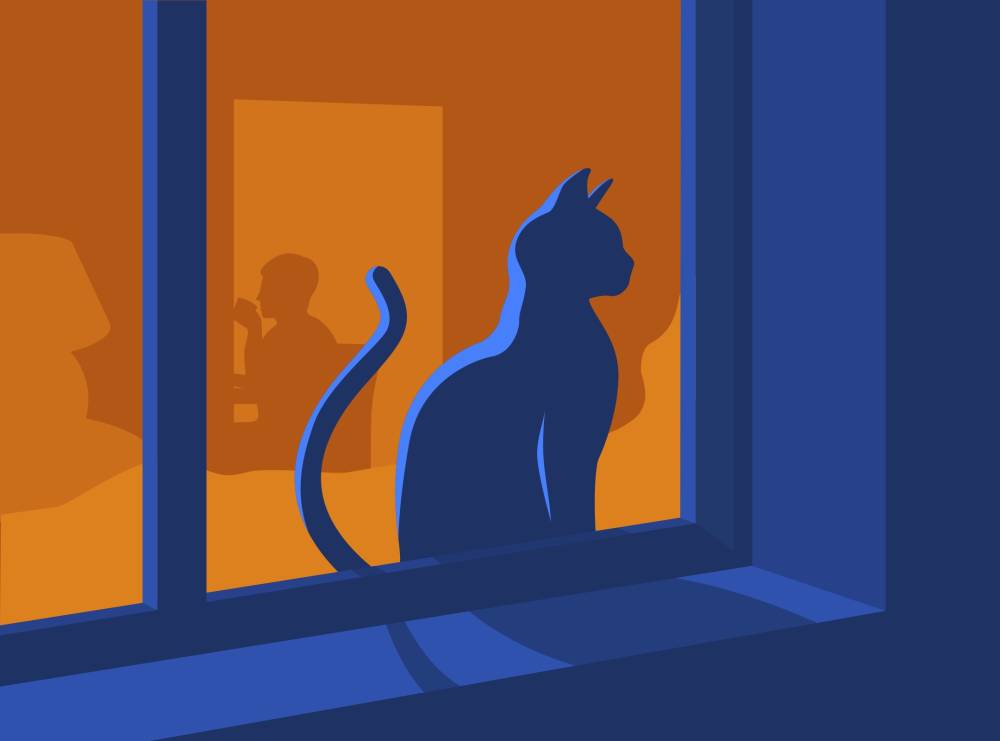
Share Article
You know how cats lounge around, until suddenly — out of nowhere! — they dart away from you into another room? Researchopens in a new tab out of the University of Kyoto in Japan suggests that felines, long assumed to be aloof, may actually be keeping tabs on their people, even when they’re next to them. The study finds that cats can “mentally map” where their human parent is, based on where their voice is coming from.
Dr. Saho Takagi, who led and co-authored the paper, told The Guardianopens in a new tab: “This study shows that cats can mentally map their location based on their owner’s voice. [It suggests] that cats have the ability to picture the invisible in their minds. Cats [may] have a more profound mind than is thought.”

Get (totally free) deals for food, treats, accessories, tech, and way more pet parenting must-haves.
opens in a new tabIn the study, Dr. Takagi and team observed the reactions of domestic cats to the voices of their parents and of other people, all of whom were out of eyesight. The study focused on 50 cats, roughly half of whom live in homes; the other half live at cat cafésopens in a new tab.
It’s an instinct
In the study, each cat was placed alone in a room with one window and two doors. Researchers equipped the space with video cameras as well as three speakers, positioned outside the window and doors. Researchers gauged feline reactions by studying the captured footage. The biggest takeaway: Cats appeared visually confused only when their pet parents’ voices — played through the speakers — seemed to teleport too quickly from one location to another.
Feline purr-veillance has roots in survival instincts. It comes in handy for hunting without a clear visual on prey and helps size up competition from nearby cats. It also helps cats triangulate the location of the human, who regularly feeds and protects them. To that end, studies have already provenopens in a new tab that cats can tell the difference between a familiar voice (ie. the one belonging to a food-giver) and that of a stranger.
Keep up the conversation
Other studiesopens in a new tab indicate that kittens and adult cats demonstrate about the same attachment rate to their people as human infants do to their parents. Meaning: cats can be more affectionate than we've assumed. Even if they’re not fans of hugs. “Although there was clear individual variability in cat preference,” one paper readsopens in a new tab, “social interaction with humans was the most-preferred stimulus category for the majority of cats, followed by food. This was true for cats in both the pet and shelter population.”
If you’re the type of person who talks even a little too much to their pet, keep talking — it is likely a comfort to them. “Cats spend most of their time sleeping, and people often think that it's good that cats just sleep,” Dr. Takagi said to CNNopens in a new tab. “But cats…may be thinking about many things.”

Nisha Gopalan
Nisha Gopalan has been a writer/editor for The New York Times, New York magazine, Entertainment Weekly, Variety, The Hollywood Reporter, and NYLON magazines. She currently resides in Los Angeles.
Related articles
![An angry and hissing Siamese kitten standing on top of a laptop computer in the living room]() opens in a new tab
opens in a new tabYou Don’t Have to Live Like This—You Can Get a Trainer For Your Cat
Tips to help you find a legit behaviorist (according to a veterinary behaviorist).
![]() opens in a new tab
opens in a new tabHow to Read Your Cat’s Poker Face
A guide to their not-so-secret tells.
![Woman with tight curly black hair wearing a tan linen shirt and jeans sitting on a cream couch petting her tan and white cat who is laying on a blanket on the couch int he living room]() opens in a new tab
opens in a new tabHow to Keep Your Cat From Having a Full Freakout When You’re Away
Cristin Tamburo, a.k.a. The Cat Counselor, gives essential advice on keeping your cats chill while you’re away.
![Three cat puzzles on a colorful pink, burgundy, and green color-block background]() opens in a new tab
opens in a new tabThe Best Puzzles to Unleash Your Cat’s Inner Einstein
Genius takes many forms. Could your cat be one?
- opens in a new tab
How to Stop Your Cat From Munching On All of Your Precious Plants
Tips to get your cat to quit eating your greens.
